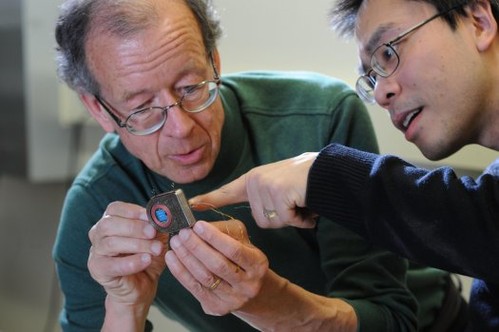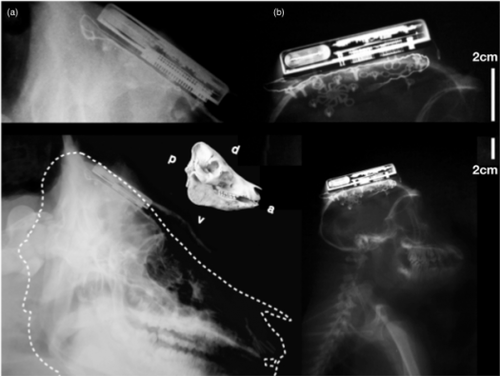The First Wireless Brain-Computer Interfaces Are Being Tested On Monkeys And Pigs

The way of life that stroke patients, paraplegics and other people with limited mobility are now leading may be soon radically changed due to the brain-computer interfaces that can translate thoughts into actions. A group of researchers at Brown University have invented the first wireless version of these devices. The new implantable brain sensor features tailor-made microelectronics and can relay broadband signals in real time from up to 100 neurons. The 2.2-inch devices have been implanted in the heads of three pigs and three rhesus monkeys for about 16 months now, and were gathering information about the neural activity, while the animals performed several activities like turning their heads or touching an apple. The device includes a pill-sized electrode chip implanted on the cortex; signals from a cluster of neurons are sent to a titanium box containing a processor, lithium-ion battery, and wireless radio and infrared transmitters. It isn’t yet approved for use in human clinical trials, though researchers are very optimistic about its future and are cooperating now with the BrainGate research team, working on implantable neural interfaces.
Via:popsci.com

| Tweet |











